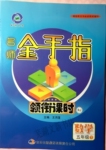��Ŀ����
It��s generous_______ them to donate money to UNICEF. It��s important _______ them to help poor children go to school.
A. to; for B. for; of C. of; to D. of; for
D �����������⣺���Ǹ����Ϲ���ͯ������Ǯ�Ǻܿ����ģ�����������˵����ƶ����ͯ��ѧ�Ǻ���Ҫ�ġ�it is+adj+of sb to do sth ����˼�ǣ�ij�������Ǻܡ��ģ�ǰ���adj.��Ҫǿ��sb���籾��ĵ�һ�գ�generous�����������˵ģ�˵�˿�����it is +adj+for sb to do sth����˼�ǣ���ij����˵�����ǡ��ģ�ǰ���adj.��Ҫǿ��do�����sth.���籾... ��ʦ����ָ���ο�ʱϵ�д�
��ʦ����ָ���ο�ʱϵ�д�There are some very good things about open education. This way of teaching allows the students to develop their interests in many subjects. Open education asks students to be responsible(�����) for their own education. The open classroom may help them to enjoy learning. Some students will be happier in an open education school. They will not have to worry about grades or rules.
But many students may not do well in an open classroom. For some students, if there are too few rules, they will do little in school. They will not make good use of open education. Because open education is so different from traditional(��ͳ��) education, these students may have a problem of getting used to making so many choices. It is important for many students to have some rules in the classroom. A few rules will help them. The last point about open education is that some traditional teachers show little interest in it. So it may not get support from those teachers.
You now know what open education is. Some of its good points and bad points have been explained. You may have your own opinions about open education. The writer thinks that open education is only a good idea. It may not work very well in a real class or school. The writer believes that most students, but of course not all students, want and need to have some rules. They must study some subjects. Many students are pleased to find the subjects that they have to study interesting. They will not study those subjects if they do not have to.
Open Education
Meaning | Open education is a way of teaching without many rules. Students are allowed to learn subjects they are 1. in. |
Good points | Open education makes students realize they are learning for 2., not for others. In open classrooms, many students don��t need to be 3. about grades or rules. Some students feel 4. in open classrooms than in traditional classrooms. |
5. points | Many students may not do as 6. in open classrooms as in traditional classrooms. It��s 7. for students to make many choices so they can��t make good use of open education. Some teachers do not 8. such a way of teaching. |
The writer��s9. about open education | Open education is just a good idea, but it may not work well in a real class or school. 10. of the students want some structures���ṹ����ϵ�� in their classes. |

